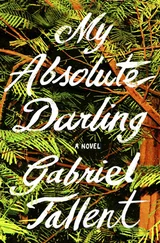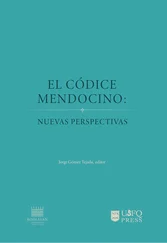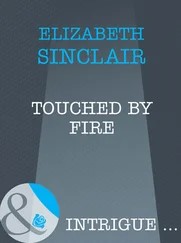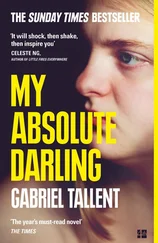“I walked across your rug and must’ve picked up some static electricity, because when I touched the computer, I got a shock, and—”
He scrambles from the bed, the rug’s nap pricking the soles of his feet.
“—it crashed. It made this little match-strike sound, and the screen went black. David. I wasn’t going to look.”
Well, then, what was she doing there? He never confides in her about his work. He’s tediously ethical that way. She could end up representing a corporation he’s going after.
“I wasn’t going to look.”
The repetition really scares him.
Her fingertips patter across the keyboard. Panic tenses her shoulders as she leans over his laptop, and her hair sticks up in tufts, dirty with yesterday’s gel — for the first time, he finds her unattractive. “Leave it,” he says; she says, “Let me just—” His chest hurts: Is this a problem, should he be paying attention? No, it’s okay, his heart. It’s only that his chest has constricted with frustration and another emotion, uglier, more imperative, pounding away. Fury.
“This weird thing happened.”
Sunday afternoons the boys and their belongings trek back to the house of Shane’s mother, Susannah, according to an agreement hashed out with Nina, Edmund’s mother, an academic on a year’s sabbatical in Paris. Nina trusts Susannah, but then so does almost everyone, including David. He sits with Susannah on her back steps, the boys dodging through the neglected garden whose sunflowers are ten feet high, yellow petals tattered and their brown, saucer-sized centers under attack by sparrows.
“—never make it out alive unless—”
“—we find a way to neutralize—”
Just hours ago Jade walked across the rug, acquiring a crackling charge of electrons that flew from her fingertips to his keyboard, cases compromised, the irreplaceable interviews, the painstaking documentation zapped, and yeah, he has some of it on disks, but not all, an uncharacteristic lapse, one he’s going to have a hard time forgiving himself for.
“When I finally got it to the guy I’ve always relied on, he said it’s permanently fried,” David tells Susannah. “Which is bound to cause problems in a number of cases. But the worst part is, I don’t know what she was doing with my computer. She has no business touching it.”
“Maybe she was looking for incriminating email. That’s the usual reason for fooling around with the other person’s computer. She must want to find out about your life before.”
“It’s not like that.”
“She could be looking for email from a previous relationship. Like with me. She could want to know how things stand between us.”
“I don’t think so. She hasn’t wanted the lowdown. She sees us more as a clean-slate kind of thing.” Or a lightning strike. An angel’s wing passing over their upturned faces.
From the shoes ranged on the wooden step — shoes with neon glyphs, striped shoes, shoes with soles thick as antelope hooves, shoes bristling with spikes — Susannah chooses one whose laces are a gray snarl and begins, with her dirty nails, to pick the knot. She says, “You do barely know her.”
Angry at her superbly divorced reasonableness, the very quality he loved a moment ago, he says, “The rug is evil.”
“Oh, David. Things aren’t evil. People are. And not that many of them, though I can see why your line of work leads you to think otherwise.”
Evil : he had continued pecking at the keyboard as if lucky ineptitude could conjure, from the dark portal, the blip of returning consciousness. Jade — exasperated by his manic persistence, in which she rightly detected anger meant for her — left for work. In the fugue state of technological thwartedness, he heard the scream , shock blazing down every dad-nerve, and danced backward to see out the French doors: Edmund hanging from a branch of the apricot tree, shrieking at his own daring. With this shriek ringing in his ears David lost his footing, and in a slow-motion trance of remorse went over backward. Falling, he seemed to view himself from above, and if he was helpless, his arms flung out and his mouth gaping, the back of his head about to connect with the floor, he was also suspended in a peaceable realm that had detached itself from terror. David had time to marvel at this double consciousness before the impact slammed it out of his skull.
“My god,” Susannah says. “You could have been really hurt”—and her palm on his nape radiates solicitude, but this kind of comforting costs her nothing, really: she can do it in her sleep. With the broad Norwegian planes of her wide-open face she’s so different from Jade, so accessible . “But you’re okay,” she says.
“Well, my back sort of—”
She turns his wrist to read his watch, and the kitchen telephone rings. The screen door bangs behind her sturdy freckled legs.
“Hi.
“You can’t?
“You can’t?
“I know but why does that have to—
“I know it is but why—
“I know.
“I know.
“I said I do know.
“Yes.
“I will.
“I won’t.
“Me too.
“Me too. Bye.”
She’s high enough from this abortive exchange to sit down beside David and confess, “I think I’m in love. After all this time. I mean, you’ve been through two wives since me. My turn, I guess.” The smile she gives him is expectant, but he’s having trouble reconciling the two realities, the reality before she vanished into her kitchen and this new version, because weren’t they still, until this confession, still, really, in spite of everything, married ? She has eluded him, slipped away taking her critical possessive practical generous irreplaceable and beautifully accessible love with her, and David says miserably, “Oh.”
“ Oh? After I listen to the wonders of your love life for six years? Oh? That’s not trying, David. That’s not even — nice. Oh? That’s cold.”
“I need to ask you about something.”
Such a transparent grab at her vanished attention: she grimaces, exaggerating the expression but truly pissed off. “Were you even listening?”
“You’re in love. And it’s, from your side of the conversation, kind of complicated.”
“When isn’t it complicated?”
He uh-huh s prevaricatingly.
She says, “Oh, of course! Marrying somebody you barely know. That keeps everything nice and simple.”
“I’m in trouble, Suse.”
“You do know you are completely selfish.” But she’s curious. “What kind of trouble?”
“This is a hypothetical. What if someone you were in love with turned out to be a Republican. How bad would that be? Would it be a thing you’d leave them over?”
“That couldn’t happen.”
“Sure it could.”
“Nope. Because when you’re talking to a Republican, you can’t talk long before you hear something, some opinion, that makes your blood run cold. Like what Emily Dickinson said about poetry? It’s poetry if it makes you feel like the top of your head’s coming off? That’s how you know it’s a Republican.” As she’s been talking, she’s been processing. “ Jade’s a Republican. David? She would be! But you’re an activist, you can’t possibly — whoa. Whoa! This changes things.”
“Of course it changes things.” But he’s confused. “What things?”
“How does she discipline, David? Are there bedtime prayers? I can’t believe how trusting I’ve been. How naive. Intimidated! I was intimidated by her. I never really believed she liked the boys. She was probably pretending to be into them out of some kind of phony family-values baloney. Or to get you.”
Читать дальше












